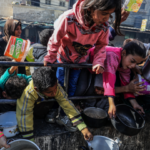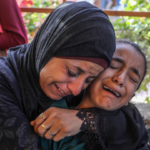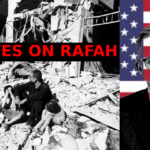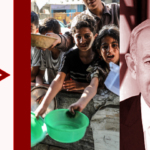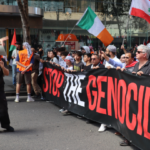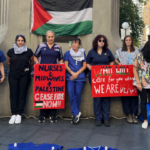ICJ to Decide Whether Israel’s Blocking of Humanitarian Aid to Gaza is Unlawful
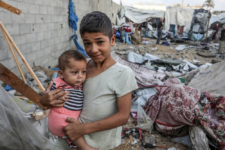
In the many years leading up to Hamas’ 7 October 2023 attack on Israel, during which almost 1200 Israeli’s were killed, the Israeli state had subjected Palestinians to what Amnesty International describes as “a cruel system of domination and a crime against humanity”, signified by unlawful occupation of Palestinian territories, mass arbitrary arrests, imprisonment and killings – including the systemic use of unprovoked attacks designed to keep Palestinian people “subdued” – an apartheid regime of whereby Palestinians have are subjected to the domination of Israeli’s on their own lands.
Following Amnesty’s 2022 report titled ‘Israel’s Apartheid Against Palestinians: Cruel System of Domination and Crime Against Humanity’, the organisation’s Secretary General, Agnès Callamard, summed up by stating:
“Our report reveals the true extent of Israel’s apartheid regime. Whether they live in Gaza, East Jerusalem and the rest of the West Bank, or Israel itself, Palestinians are treated as an inferior racial group and systematically deprived of their rights. We found that Israel’s cruel policies of segregation, dispossession and exclusion across all territories under its control clearly amount to apartheid. The international community has an obligation to act.”
And following the 7 October 2021 tragedy, United Nations Secretary General Antonio Guterres remarked:
“The attacks by Hamas did not happen in a vacuum, he noted, with the Palestinian people being subjected to 56 years of suffocating occupation, during which they saw their land devoured by settlements; their economy stifled; their homes demolished; and their hopes for a political solution vanishing.”
There can be little question that Israel has used the events of that fateful day to justify its horrendous campaign of atrocities upon the men, women and children living in Gaza and the associated humanitarian crisis – whereby the territory has, for all intents and purposes, been destroyed, attacks perpetrated on civilian targets including hospitals and schools – justified by since debunked claims members of Hamas had been hiding out on them – humanitarian workers, journalists and over 1000 medical staff hunted down and killed. Indeed, nearly 70% of Palestinians killed in Gaza are women and children.
Accompanying its campaign of mass killings has been Israel’s systemic denial of humanitarian aid such as water, food and medicine to the Palestinian people – resulting in widespread death by starvation and preventable illness.
It has been reported that:
“No food or medical supplies have reached the 2.3 million residents of the Gaza Strip since March 2 when Israel imposed what has become its longest ever blockade of the territory.”
Now, following a 2024 request by the United Nations General Assembly, the International Court of Justice (ICJ) is holding hearings aimed to determine whether Israel’s blockade of humanitarian aid contravenes its obligations under international law.
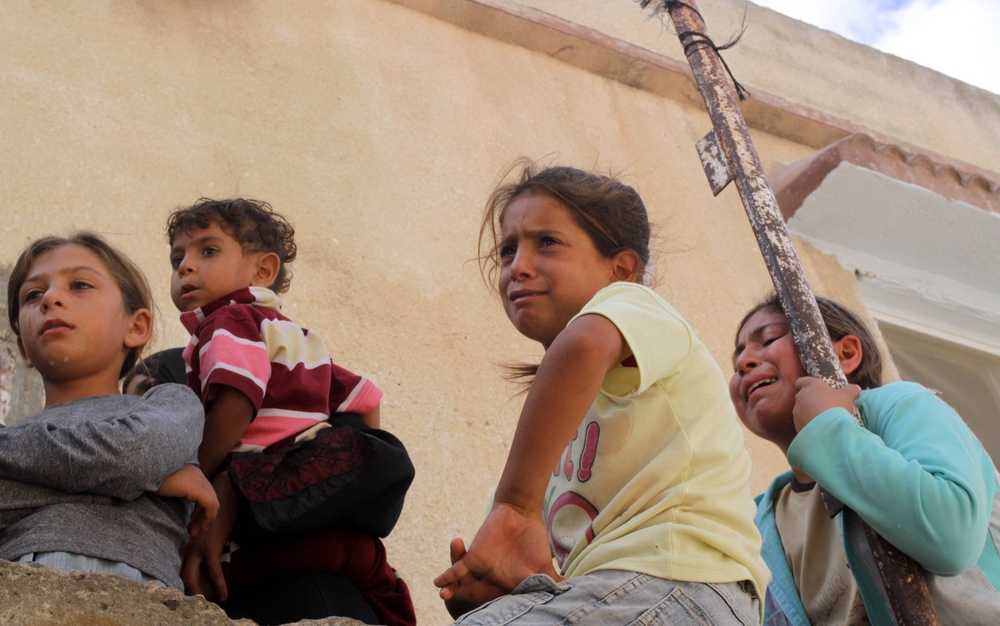
The Hearings
The hearings commenced on Monday, 28 April 2025 and are expected to take 5 days.
Palestinian official Ammar Hijazi describing the denial of aid as a “weapon of war” and many hope the ICJ will put pressure on Israel to allow humanitarian aid to reach the starving and sick.
However, Rory Challands is not so hopeful, pointing out that Israel has ignored “other judgements from the IC and International Criminal Court.”
Israel has repeatedly claimed its actions are justified, making clear it will not relent. Indeed, the nation has been emboldened by support – both militarily and politically – from nations such as the United States and Australia – with both nations and others supplying the weapons used to perpetrate war crimes.
Evidence of Israel’s War Crimes in Gaza
Since October 2023, Israel has been responsible mass displacement, forced removal and murder of Palestinians in Gaza.
The Human Rights Watch released a report back on 14 November 2024 that detailed more than 150 pages of the displacement of more than 90% of Gaza’s population, which accounts for nearly 2 million Palestinians, and the mass destruction of much of the country in 2023 and 2024.
Israeli forces have demolished homes, destroyed civilian infrastructure, raided “safety” and buffer zones, and blatantly disregarded the laws of war. The Human Rights Watch noted that the Israeli government is unable to claim they have been helping Gaza citizens, and Palestinians, with the best interest in mind, as they are cutting off innocent peoples’ access to food, water, transport, and basic healthcare.
Despite Israel claiming that the military can lawfully evacuate civilians to “protect” them from Palestinian militia groups, there is no evidence or military reason that justifies the displacement and harm of much of Gaza’s population. Instead, Israeli forces have deliberately attacked and targeted safe zones within the country, ignoring evacuation orders and blocking necessary humanitarian aid.
Notable war crimes that have transpired since the initial assault on the Gaza Strip between 7 October and 12 October include:
- Illegal 16-year blockade of the Gaza Strip
- Killing civilians and taking hostages in the Gaza Strip
- Knowingly launching a disproportionate attack or indiscriminate attack that kills and injures civilians
- Wilful killing and mistreatment
- Destruction of protected civilian property
- Crime against humanity of extermination
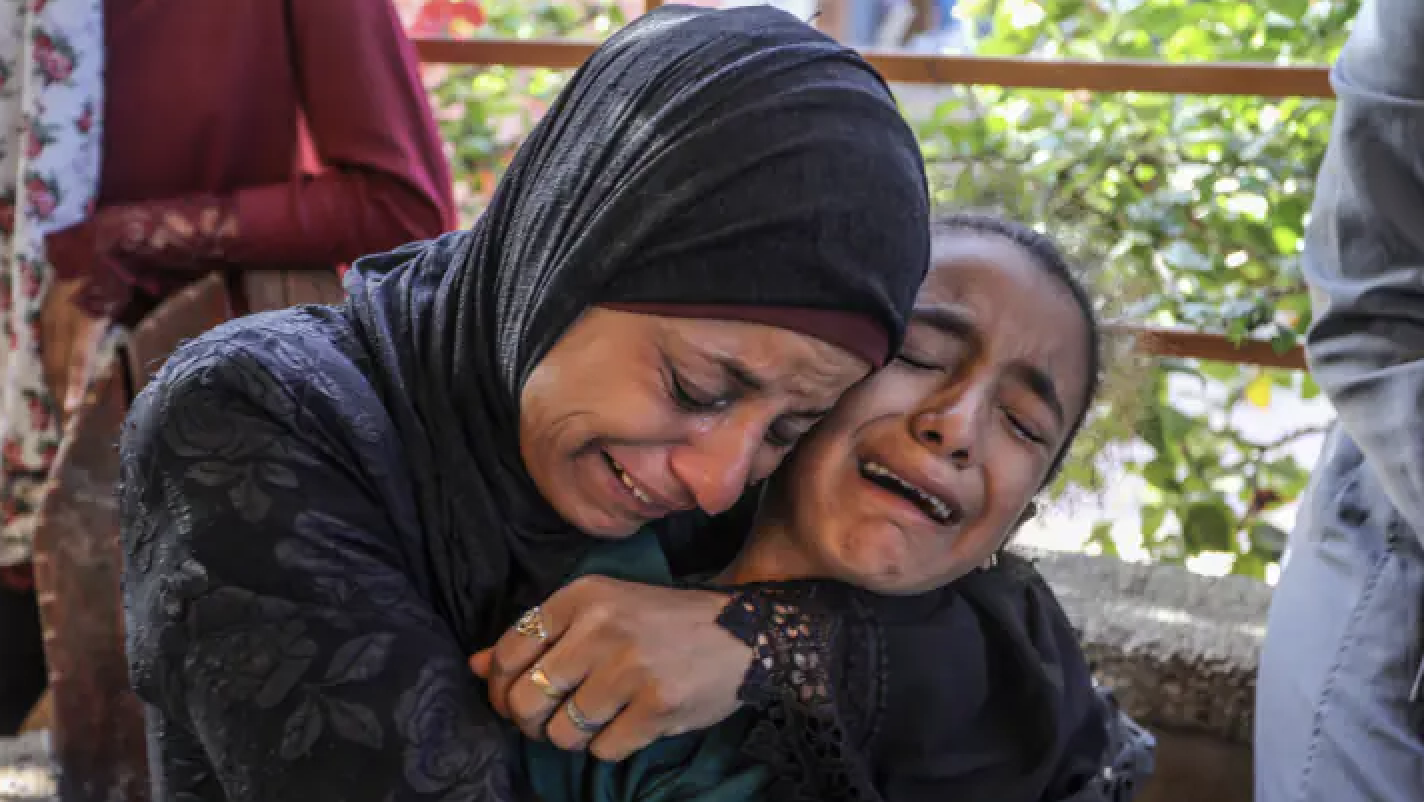
Denying Humanitarian Access as a War Crime
‘Humanitarian assistance’ in the context of a possible crime under international law refers to emergency action to ensure the survival and welfare of those affected by war, including clothing, medical supplies, food, water, shelter, and bedding. For help to be considered humanitarian, the only purpose of the help must be to remedy human suffering.
Other countries and organizations can offer aid to other countries without interfering with internal matters if they obtain governmental approval, ensuring consent meets the necessary requirements. However, the ICRC Commentaries on the Protocols note that ‘if the survival of the population is threatened’ — which it is in the case of the Gaza strip — ‘relief actions must take place, as a refusal would be equivalent to a violation of the rule prohibiting the use of starvation as a method of combat.’
Thus, if Israel was found guilty of deliberately blocking aid, such as food, from entering the Gaza Strip, this would be considered as using starvation as a weapon.
For Israel’s actions to constitute a crime under international law and be considered a war crime, specific criteria must be proven:
- Existence of an armed conflict — “whenever there is a resort to armed force between States or between governmental authorities and organized armed groups”
- The act must be committed against a person protected under international humanitarian law (civilians, individuals deprived of liberty, prisoners of war)
- Committed by act or omission
- Torture Convention — denial of humanitarian assistance can constitute torture if it causes severe pain and suffering
- Intentionally using starvation of civilians as a method of warfare by depriving them of objects indispensable to their survival
Overall, for the ICJ to determine whether Israel has blocked relief from entering the Gaza Strip, they will need to address the matters of intentionality, how the aid was impeded, whether there was a direct link between the act of denial and the death of persons, and whether parties are obliged to pause fighting for relief to be delivered.


